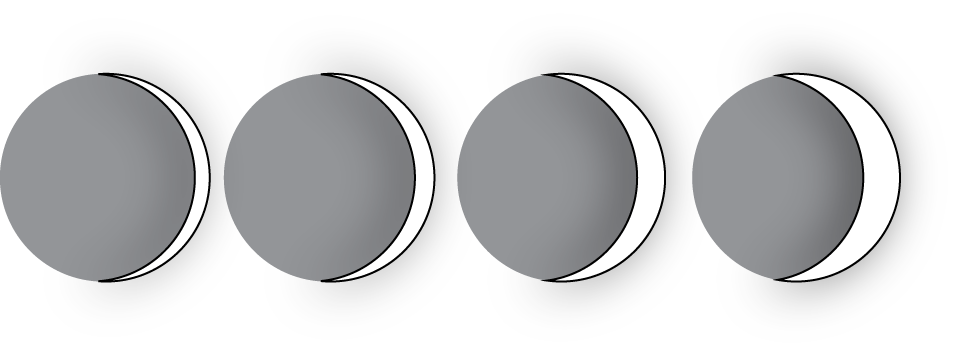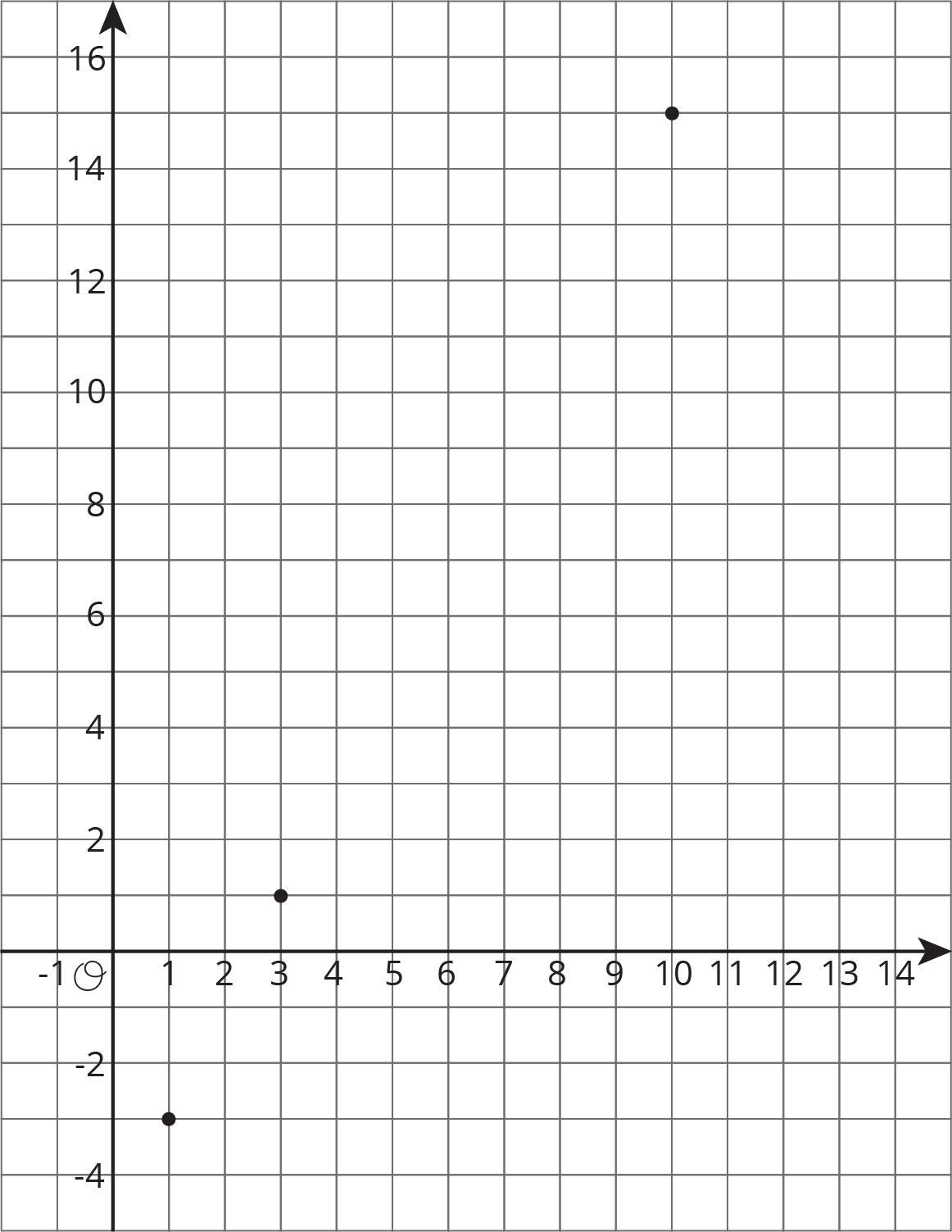Lesson 9
Linear Models
Let’s model situations with linear functions.
Problem 1

On the first day after the new moon, 2% of the Moon's surface is illuminated. On the second day, 6% is illuminated.
-
Based on this information, predict the day on which the Moon’s surface is 50% illuminated and 100% illuminated.
-
The Moon’s surface is 100% illuminated on day 14. Does this agree with the prediction you made?
-
Is the percentage illumination of the Moon’s surface a linear function of the day?
Problem 2
In science class, Jada uses a graduated cylinder with water in it to measure the volume of some marbles. After dropping in 4 marbles so they are all under water, the water in the cylinder is at a height of 10 milliliters. After dropping in 6 marbles so they are all under water, the water in the cylinder is at a height of 11 milliliters.
- What is the volume of 1 marble?
- How much water was in the cylinder before any marbles were dropped in?
- What should be the height of the water after 13 marbles are dropped in?
- Is the relationship between volume of water and number of marbles a linear relationship? If so, what does the slope of a line representing this relationship mean? If not, explain your reasoning.
Problem 3
Solve each of these equations. Explain or show your reasoning.
\(2(3x+2)=2x+28\)
\(5y+13=\text-43-3y\)
\(4(2a+2)=8(2-3a)\)
Problem 4
For a certain city, the high temperatures (in degrees Celsius) are plotted against the number of days after the new year.
Based on this information, is the high temperature in this city a linear function of the number of days after the new year?

Problem 5
The school designed their vegetable garden to have a perimeter of 32 feet with the length measuring two feet more than twice the width.
-
Using \(\ell\) to represent the length of the garden and \(w\) to represent its width, write and solve a system of equations that describes this situation.
-
What are the dimensions of the garden?